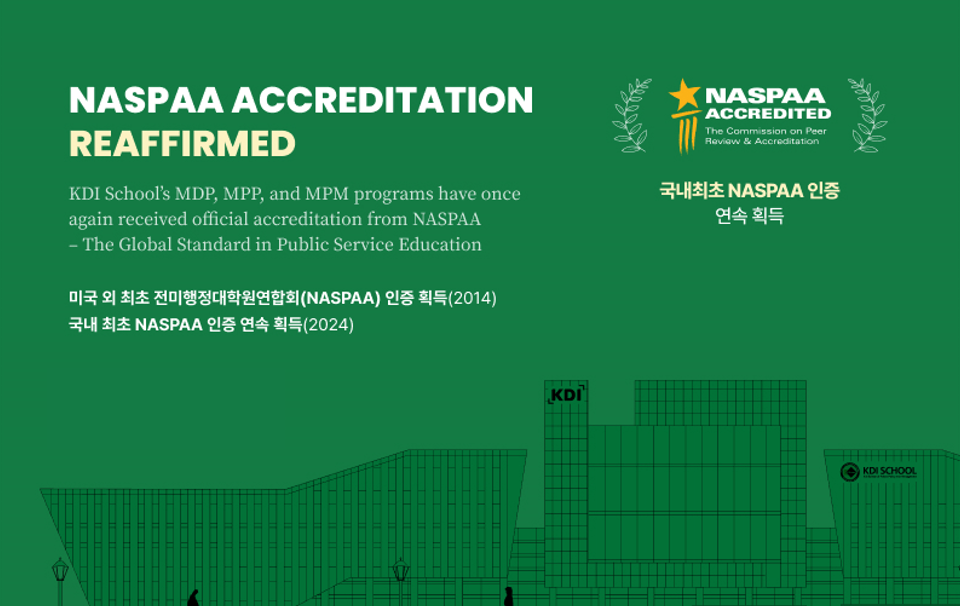
Future of education : in conversation with Professor Ju Ho Lee
- Date 2013-08-01 09:03
- CategoryResearch and Education
- Hit1885
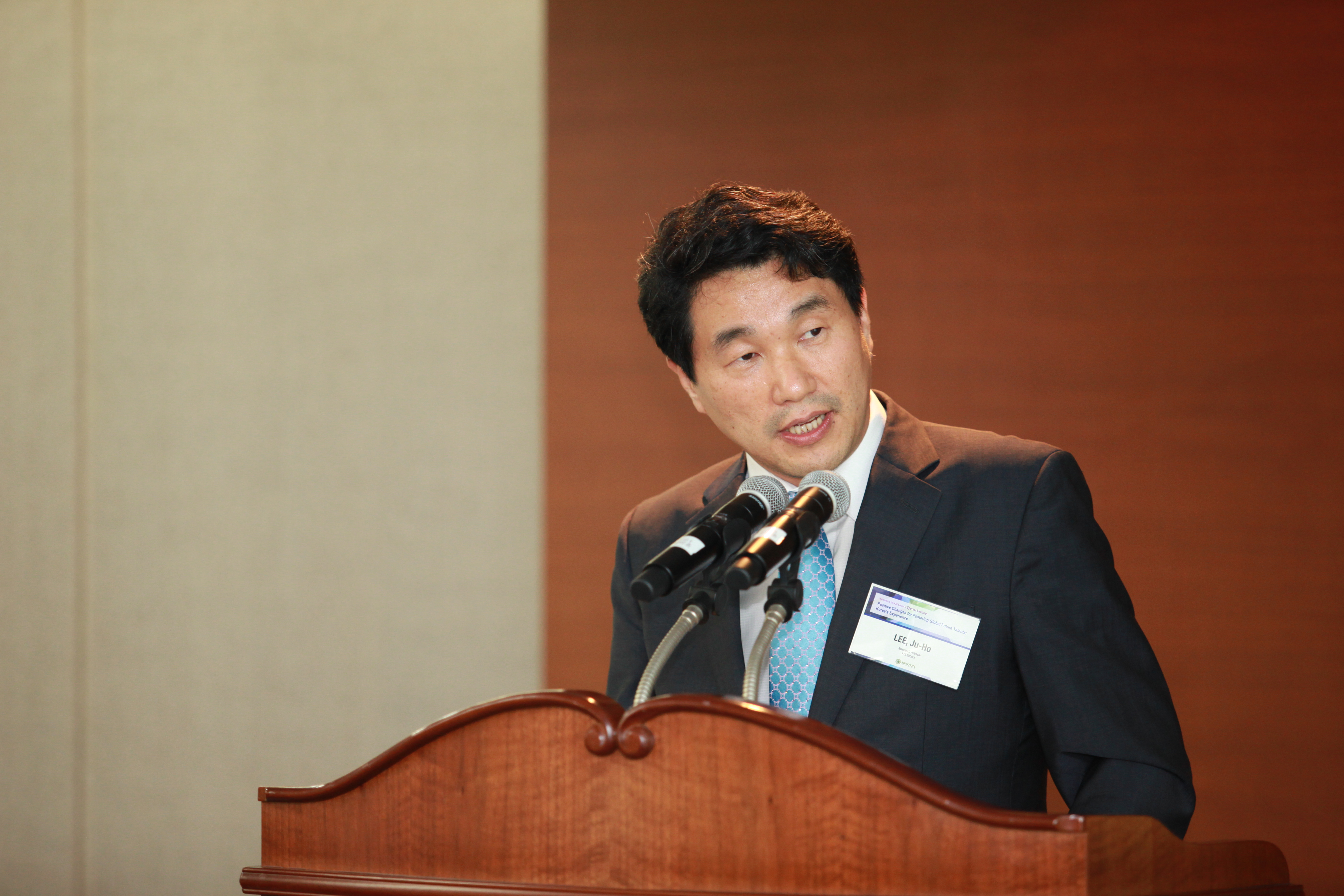
Professor Ju Ho Lee, one of the founding fathers of the KDI School finished his 9 year stint with the Korean government in May 2013 and came back to academic life at the KDI School. In his previous avatar, he served as the Minister of Education, Science & Technology. I decided to meet Professor Lee over lunch to capture his insights on what’s next in Education.
How easy or difficult has been the transition from politics to academics? Do you notice any changes in the KDI School?
It feels great to be back. For me, coming back to academia is much easier. Looking back I can say that when I joined the government after 2 decades of being a teacher & researcher, it wasn’t easy. That was a much harder transition to make.
I am very happy to see that the KDI School has stayed on its path of becoming an exceptional institution. The KDI School was created with the aim of setting an example that would showcase the globalization of Korean higher education. It has many firsts to its credit for instance it was the first institution in Korea to offer the entire curriculum in English and set international standards in many aspects of staff policies such as performance linked pay for professors. When I look at the way the KDI School has grown in terms of the diversity & profile of both students and the faculty, I feel confident that the KDI School is on its way to achieving the goals that it was started with.
There is an increasing trend among higher education institutions especially in Asia to undertake strategic partnerships. Do you feel these collaborations have worked well and how you see them scaling up further?
I initiated the CAMPUS Asia program two year ago and I am very happy that the KDI School is now an active partner in the program. But beyond the student and intellectual exchange, these educational partnerships are actually strengthening the relationship between East Asian countries since there are limited avenues of collaboration among countries in the region. I feel educational partnerships face less resistance from pressure groups & politicians and they are a good way to boost cooperation among countries. While there have been some initial hiccups and teething troubles, the Campus Asia program is growing bigger. If the CAMPUS Asia program can be developed on the lines of Erasmus Mundus in EU and include more partner countries such as India, the impact of this program will increase dramatically.
What is the direction of the major reforms in the Korean Education System?
Some of the current areas of focus of educational reforms in Korea are:
- How to reduce stress for students and make the educational experience more fulfilling
- Inculcate creativity and emotional capabilities in students, the ability to embrace other cultures – basically things that are not explicitly taught in a curriculum
- Initiatives such as admission officer system are changing the entry requirements for college by making it less grade dependent and giving more weight to extra-curricular activities.
Science & Technology is the cornerstone of any developed economy. What are the trends in the R&D investment on Korea?
Korea stands fifth in the world in terms on total R&D investment. In the last few years, investment in university research has also increased significantly. Moreover, with the establishment of National Research Foundation and the introduction of peer review system, funding can be channelized to universities in a more efficient and fair manner.
Institute of Basic Science (IBS) was recently setup to provide a thrust to basic science research. It recruits the best scientists from around the world; the principal investigators are given a free hand to pursue new research ideas with no bureaucratic interference.
Korea is ‘notorious’ for its Private Education industry. There was a time when the private sector filled important gaps in the education sector and made critical investments that enabled the training of the Korean workforce. How do you see the role of private sector changing especially at a time when many hold the sector responsible for creating an education bubble?
The participation of the private sector in education is necessary but the question is which areas and how they participate. For instance it is desirable for that they participate by establishing private schools not private tutoring centres. The private sector can also play a big role in developing content, innovative technologies and e-learning platforms. So, there are clearly many areas within education where the private sector can add a lot of value
The policy interventions that incentivize such selective participation are not only difficult to design but also difficult to implement because they it would result in excessive interference by the government and may lead to other distortions. But the fundamental issue here is how can we strengthen the public education system? If the public education system is robust enough, it will automatically eliminate some of these problems and push the private sector to look for newer areas of participation.
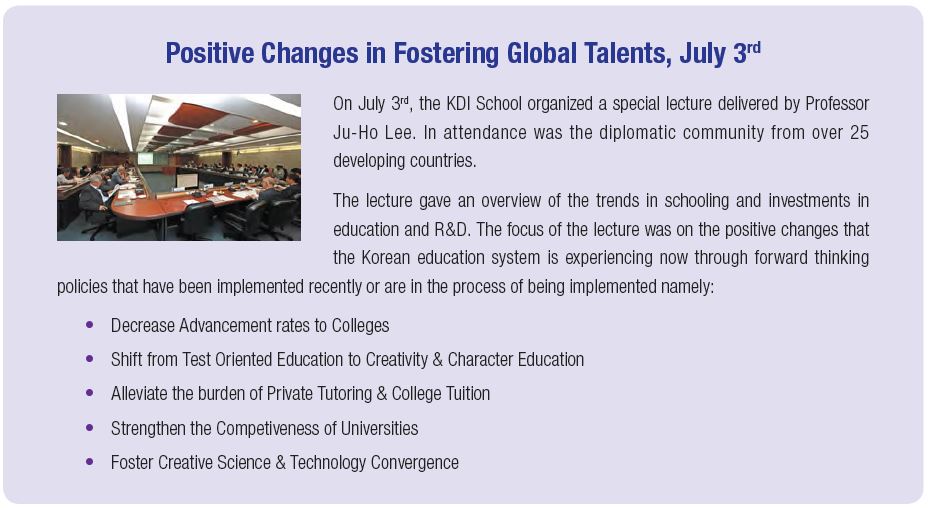
By Manish Joshi (2012 MPP, India)
Related News
-

Research and Education2 days ago
Republic of Korea Economic Bulletin, July 2025#KDI #Economic #KDISCHOOL #kdischool #Economic Bulletin #Research
-
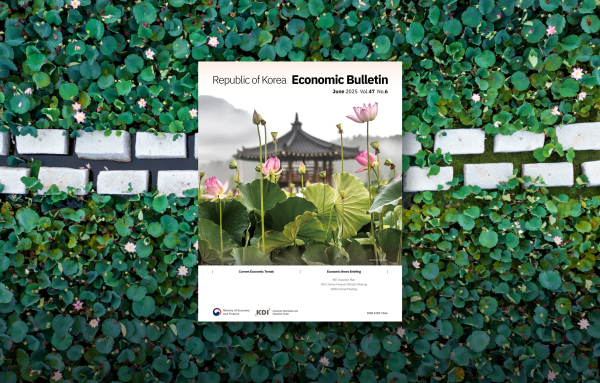
Research and Education30 days ago
Republic of Korea Economic Bulletin, June 2025#KDI #Economic #KDISCHOOL #kdischool #Economic Bulletin #Research
-
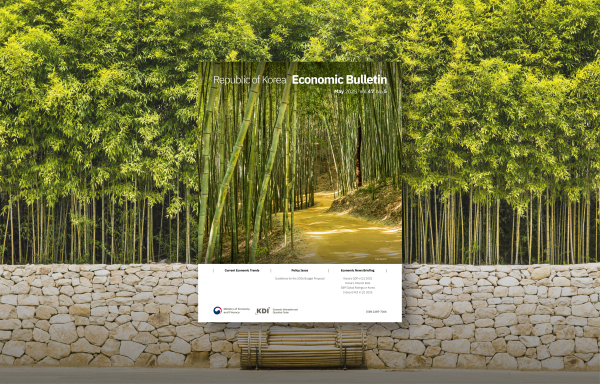
Research and Education64 days ago
Republic of Korea Economic Bulletin, May 2025#KDI #Economic #KDISCHOOL #kdischool #Economic Bulletin #Research

